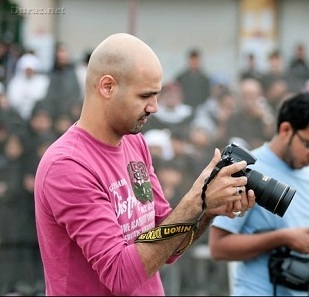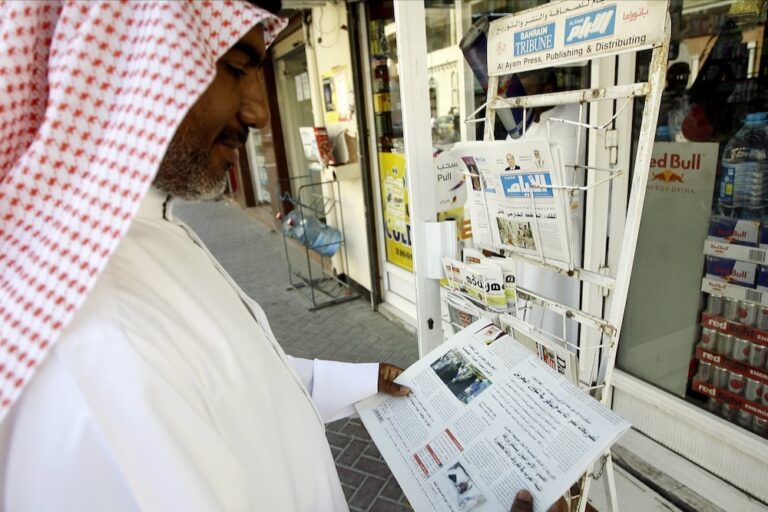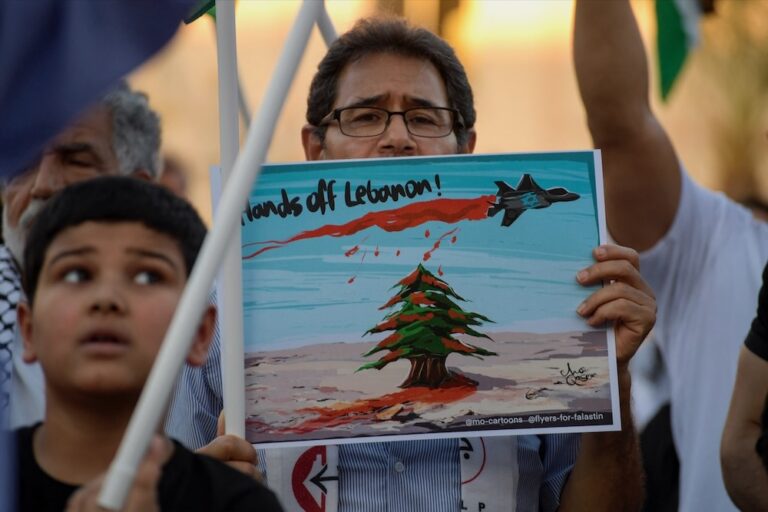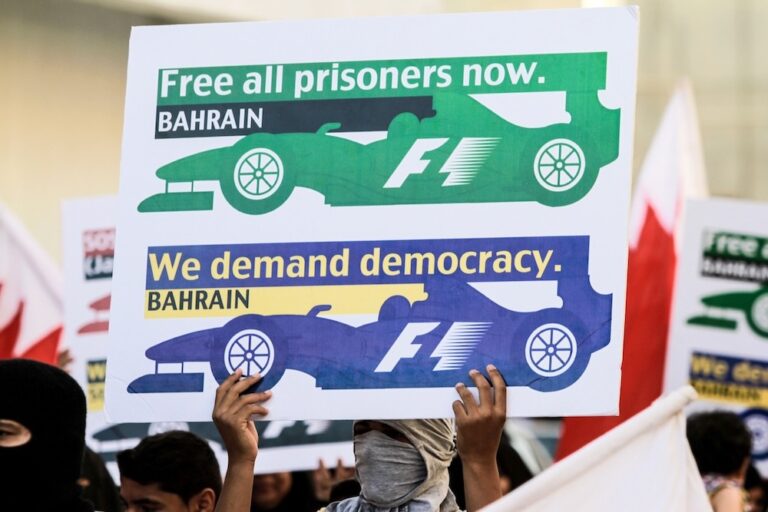Hassan Matooq, a pediatric nurse and amateur photographer, was arrested and tortured while in detention, and then sentenced by a military court for taking pictures of the protests.
(BCHR/IFEX) – 1 December 2011 – The Bahrain Center for Human Rights (BCHR) is deeply concerned with the news that on 28 November 2011, the Court of Cassation upheld a provision issued by the Military Court (Court of National Safety) which previously sentenced the nurse and photographer Hassan Matooq to three years’ imprisonment. This move reveals the government’s intent to continue its violation of human rights, in particular the right to a fair trial, protection from torture and freedom of expression. Matooq is serving a prison sentence for his photography activities during the protests.
Matooq, 30, a pediatric nurse for more than seven years, is married with one child and practices photography as a hobby.
After midnight on 24 March 2011, after a state of national security was declared and a campaign of mass arrests was launched by the authorities, Matooq was arrested by more than 20 masked army men from the Salmaniya Hospital, where he was on duty. Matooq was exposed to beating, kicking and verbal abuse from the moment of arrest, and even his ring was stolen from his finger by one of the individuals involved in arresting him.
During his detention, Matooq was severely beaten and hung by his hands for up to eight days at a time. He was prevented from sleeping and officials threatened him, saying that his wife and sister would be raped in front of him. His camera and all the films, as well as his wife’s car which he used to go to work on the day of his arrest, were all confiscated.
His family was unable to find out where he was being detained until weeks after the arrest. They were not allowed to visit him or see him until the beginning of his trial at the military court a month and a half after his arrest. They were informed of the date of his trial less than 24 hours before it took place, making it difficult to find a lawyer. Matooq attended the first hearing at the military court on 9 May 2011, without a lawyer.
At the next session on 12 May 2011, after a short hearing, the military court sentenced Matooq to three years’ imprisonment for illegal assembly and dissemination of fabricated photos of the wounded who suffered injuries as a result of the brutal repression exercised by the government against peaceful protesters in Bahrain. These charges directly contradict the Bahraini Constitution (Articles 23, 26, 28) and the International Covenant on Civil and Political Rights (signed and ratified by Bahrain in 2006), which guarantees the right of peaceful assembly and expression of opinion by any means, including photography and publishing.
While state media machines worked intensively to promote the transfer of national security cases to the civil courts, the reality shows that Matooq, like dozens of other detainees, has not had a chance of re-trial in a civilian court. His first appeal was considered at the Military Court of Appeals during the period of national security, which upheld the ruling in June. After the issuance of a Royal Decree in late June allowing those convicted in cases of national security to challenge the provisions in the civil courts, Matooq’s lawyer submitted an appeal which was not considered until 28 November 2011, when the Court of Cassation upheld the ruling issued by the military court of three years’ imprisonment.
Numerous human rights organizations, both local and international (Human Rights Watch, Amnesty International), have condemned the provisions of the military court for violating the fundamental right of civilians detainees to be tried by a competent court. These groups, as well as the Bahrain Independent Commission of Inquiry (BICI), condemned the use of torture to elicit confessions that were used by the military court as the only evidence in most cases. Rights groups and lawyers have challenged the constitutionality of the Bahrain National Security Court and have demanded a halt to the implementation of its sentences. The Court of Cassation continues to look at the many cases that were decided on by military courts where the convicted were not given a fair trial – all of whom have been subjected to the same conditions of arbitrary detention and torture – because of their involvement in peaceful protests.
BCHR believes that the continued detention of prisoners of conscience is an illegal act. Both BCHR and the BICI, which was appointed by the King, have confirmed that arrests occurred following the legitimate exercise of the right to freedom of expression and peaceful assembly, therefore pointing to the arbitrariness in the procedures of detention, unfair trials and lack of due process, and the occurrence of torture on a large scale.
BCHR demands that the Government of Bahrain and the international press community call for the immediate release of Hassan Matooq and all political prisoners who have paid the price for exercising their rights and were victims of the ferocious crackdown that was the regime’s response to peaceful protests. In light of the vast amount of information on human rights violations in Bahrain, BCHR calls on the international community to take urgent action to guarantee justice for those who have been suffering for months.



